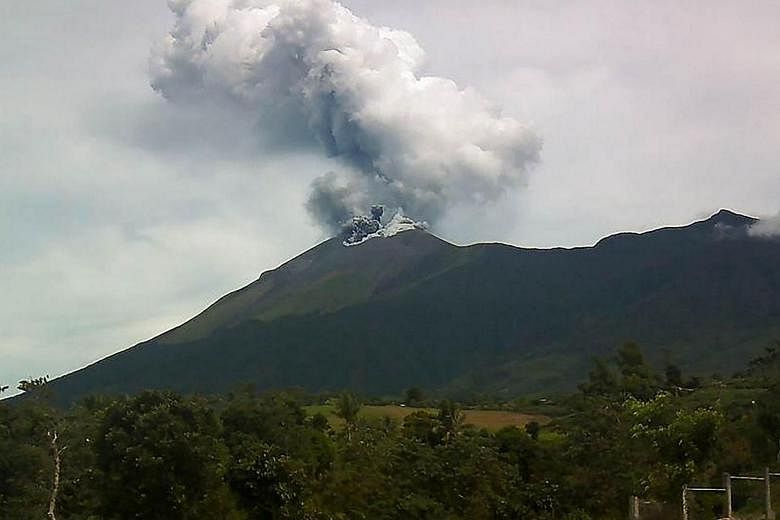Volcanic activity on Negros Island in the Philippines has grounded nearly three dozen domestic flights, causing travel disruptions for passengers. The Philippine Institute of Volcanology and Seismology (Phivolcs) raised the alert level for Mount Kanlaon to Level 2 on Monday evening after a brief but powerful eruption. This prompted the Manila International Airport Authority (MIAA) to announce the cancellation of 29 flights scheduled for Tuesday, citing concerns about volcanic ash in the airspace.
The cancellations primarily affected short-haul flights departing from Ninoy Aquino International Airport (NAIA), the country's busiest airport, to destinations within the Philippines. Airlines like Cebu Pacific and its subsidiary Cebgo were among the carriers forced to adjust their schedules. Passengers impacted by the cancellations were contacted by their respective airlines and offered options to rebook their flights within the next 30 days without penalty, receive a full refund, or store the value of their ticket for future travel.
The Level 2 alert for Mount Kanlaon indicates a heightened state of unrest, with Phivolcs warning of possible phreatic or steam-driven eruptions and the potential for the expulsion of ash. The institute is closely monitoring the volcano's activity and has advised residents living near the mountain to stay vigilant and prepare for evacuation if necessary.
While the immediate threat appears to be contained, the ongoing eruption poses a potential challenge for air travel in the region. Volcanic ash can be hazardous to aircraft, causing engine damage and visibility issues. The MIAA is working closely with Phivolcs to assess the situation and determine when it will be safe to resume normal flight operations. Passengers flying into or out of the Philippines in the coming days are advised to check with their airlines for the latest updates on potential delays or cancellations.
The incident highlights the complex relationship between natural phenomena and air travel. The Philippines, an archipelago nation with numerous active volcanoes, is no stranger to volcanic disruptions. This latest event serves as a reminder of the importance of robust monitoring systems and clear communication protocols to ensure passenger safety and minimize travel disruptions in the face of volcanic activity.

